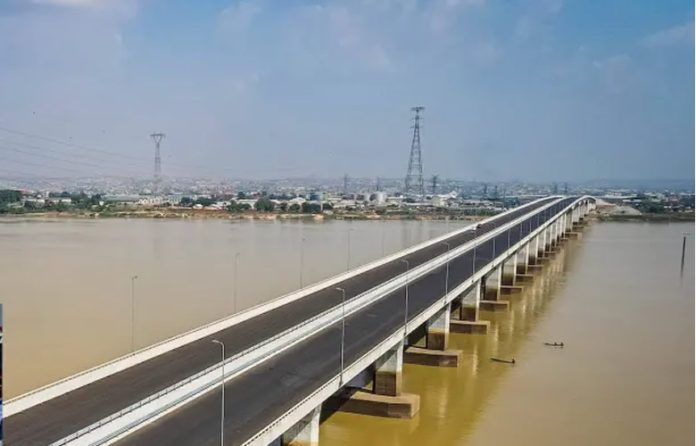FROM the newly opened Second Niger Bridge, to railway tracks and power cables, to telecommunications masts, road railings and streetlights, vandals are laying waste to public infrastructure across the country. Several incidents of theft of cables and other wirings have been reported, rail tracks have been vandalised, power transformers stripped, and railings on pedestrian bridges removed. The constant thievery calls for concerted action by the three tiers of government and the law enforcement agencies to neutralise the criminals and protect public property.
In a country with a wide infrastructure deficit and a poor maintenance culture, the activities of thieves and vandals are pernicious.
Infrastructure serves as the backbone of any thriving society, providing the essential framework for economic growth, public safety, and community connectivity. Brookings Institution, a US think tank, asserts, “Infrastructure enables trade, powers businesses, creates opportunities for struggling communities, and protects the nation from an increasingly unpredictable natural environment.”
But between them, Nigeria’s governments on the one hand, and vandals on the other, are depriving Nigerians of the benefit of public facilities and grinding many into poverty. While the federal, states and local governments fail to provide adequate, or quality infrastructure, maintain them, or effectively protect them, the vandals and criminals are damaging the little available and stripping them of their fittings.
Agusto & Co, a rating agency, estimates that Nigeria’s infrastructure deficit requires $3 trillion to close over 30 years, while the National Integrated Infrastructure Master Plan envisages spending of $150 billion yearly to achieve the target.
Infrastructure vandalism has been on the rise in recent years and needs to be addressed with urgency and determination. The malicious acts take many forms, including graffiti on public property, destruction of public transportation facilities, and sabotage of critical utility services. Rather than isolated incidents, they are symptomatic of the broader issues of disrespect for public resources and an erosion of the society’s social values.
Recently, vandals tampered with the newly inaugurated SNB in Onitsha, Anambra State. Unveiled by former President Muhammadu Buhari in May, some hoodlums vandalised a section of the N336 billion structure to steal some fittings just weeks after.
There has also been no let-up in the long-running destruction of oil pipelines, power cables, rail tracks, telecoms base stations, bridges, road signs, streetlights and other public assets and appurtenances. These are costly public property for which the government sometimes took loans to build.
In July, Nigerian Air Force personnel caught a cable thief on Airport Road, Lagos at about 1.35am. Three other thieves were sighted days later excavating the Federal Airports Authority of Nigeria’s underground armoured cable. One Usman Musa was arrested at the scene after he was shot and injured in the shoulder while his accomplices fled.
Also recently, the Nigeria Security and Civil Defence Corps arrested 12 individuals vandalising railway sleepers and recovered two trucks carrying stolen railway sleepers in Nasarawa State. The corps personnel also discovered two illegal warehouses containing over 500 pieces of stolen sleepers, and recovered a forged NRC scrap delivering paper.
The arrest in 2021 of Yusuf Mada, the Special Adviser on Infrastructure to the Nasarawa State Governor, Abdullahi Sule, and 16 others, for rail track vandalism in the Lafia and Keana LGAs of the state, highlighted complicity by state officials in the racket.
Security agents should deploy their intelligence skills to identify the markets and merchants specialising in trading in stolen public sector goods. This requires undercover detective work and effective use of technology tools and of informants.
In Lagos, many flyovers and pedestrian bridges have been stripped bare, with their fittings and railings stolen or damaged. The increasingly brazen hoodlums have recently taken to hacking the concrete dividers on major highways to extract the embedded steel.
In the Federal Capital Territory, solar-powered streetlights have been stolen. Some of the poles were cut off and taken away alongside the solar panels and lights. Given the frequency of the theft, arrests of culprits across the country have been too few.
About N556 billion was lost between August and October 2021 to pipeline vandalism, sabotage and other challenges that led to the shut-in of over 17.86 million barrels of crude oil, according to the Nigerian National Petroleum Company Limited. Moreover, operators spend a king’s ransom on the repair and maintenance of damaged pipelines. The NNPC said it spent N53.36 billion on this in 2020.
Infrastructure vandalism drains public funds, and hurts businesses, causing the diversion of significant financial resources away from critical projects and investments. It engenders insecurity, compromises the credibility of public institutions, and raises concerns about the effectiveness of law enforcement agencies and the justice system.
The scourge had to be tackled with renewed vigour. Preventive measures, community engagement, and robust law enforcement efforts are crucial in reducing it and mitigating its financial impact on society. To foster a sense of responsibility and ownership among citizens, the government needs to work harder to preserve infrastructure and build stronger, more resilient communities.
This raises afresh the urgency of devolved policing, featuring state-level police agencies and community policing. Vandalism cannot be effectively neutralised unless local neighbourhood watch units, vigilance groups, and state and regional security law enforcement agencies are brought to bear.
These should be accompanied by awareness campaigns that emphasise the importance of public property and the negative consequences of vandalism. By instilling a sense of ownership and pride in communal spaces, the authorities can create a culture that actively discourages such destructive anti-social misconduct.
Citizens should be encouraged to report any acts of vandalism promptly, and the relevant authorities should respond swiftly to address these issues.
Law enforcement agencies should dedicate adequate resources and expertise to tackling the problem effectively. Equipped with modern surveillance technology and data analytics, they can identify patterns and apprehend perpetrators more efficiently.
Swift and appropriate legal action against vandals will also serve as a deterrent to other potential offenders. Vandalism has to be stamped out with determination.
Share your story or advertise with us: Whatsapp: +2347068606071 Email: info@newspotng.com















